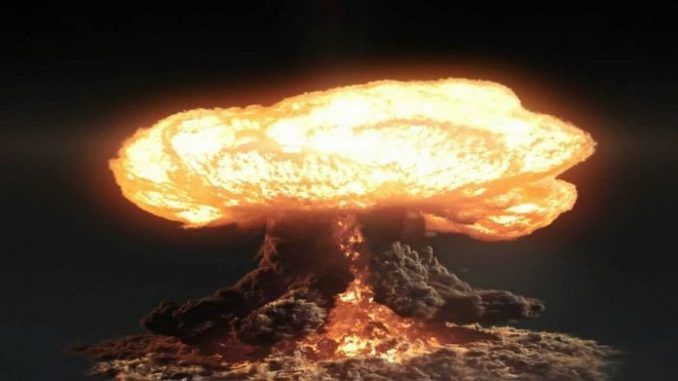The news that Amazon is on track to become the largest U.S. delivery service by early 2022, should be troubling to the American people. The company's worldwide consumer business CEO, Dave Clark recently said, “I think we’ll probably be the largest package delivery carrier in the U.S. by the time we get to the end of the year, if not in early "22." Clark added that because of its size, the company has been able to secure ships and send goods through lesser-used ports to avoid blockages that will give the retailing giant another major advantage during this holiday season.
 |
| Far From Environmentally Prudent |
This underlines the fact that Amazon is a predatory monster. With the help of our government, it has grown rapidly to exploit America and continues to engulf and devour its competitors. Thursday night NBC news did a fluff piece on what they called Amazon's state-of-the-art delivery system. The NBC report showed an Amazon building was full of robots then a slew of planes with Prime painted on them that are used to rush items to consumers.
By
calling its disruption facilities "fulfillment centers" Amazon tries to
give customers the impression they are fulfilling their needs rather
than just pushing merchandise. Even its logo resembling an upturned
penis resembles a smile letting people know it is their friend. Those putting a friendly face on Amazon spin in a positive way the damage it does calling it, "creative destruction." Someday we may look back at how it has altered the fabric of America with huge regret. Americans are trading both their future and freedom in exchange for the
baubles Amazon dangles in front of them each day. Make no mistake, there
is no free lunch and every item people purchase from Amazon carries with it a large hidden cost.
 |
Bezos Is Not A Man Of The People
|
The narrative that Jeff Bezos pursued the American tradition and his
company
grew great by simply offering a better product at less cost is
obliterated by several facts.
Amazon is not a great company with huge profits, it is an exploiter that has
linked itself to the deep-state and feeds at the government teat. Is it a
coincidence that Bezos suddenly leaped into the news about the time he
cemented his ties with the CIA in 2013? An indication of this tie occurred only six days before Bezos contracted to buy WaPo when due to widespread labor-activist criticism of Amazon, then-President Obama went to an Amazon warehouse in Tennessee to show his support for Amazon. Obama claimed the jobs being created were part of the new high-tech economy rather than merely shifted from companies Amazon was putting out of business.
While touting Amazon as a model of efficiency what people often forget is that its overall business model is far from efficient. Little attention is being paid to the environmental damage being done as it quickly places goods in the hands of spoiled customers that are in no real hurry for them or decide to return them. What happens to returns or items people decide they do not want is a huge problem. The Amazon model tries to ignore the large number of goods that are returned, discarded, or underused. When people handle and view a product before buying it they are far more likely to use and enjoy it.
Polluting planes flying packages across the country and putting a small item in a box to be driven miles to a customer's doorstep is far from environmentally prudent. The amount of waste generated from such a promotional online distribution model boggles the mind. Especially concerning is that companies using such a model often find it easier to tell a customer to throw away certain types of items rather than return them. This is because often the hoops they must jump through to get the product back means it is more economical to simply write the transaction off. Another problem is the item can no longer be considered "unspoiled" and fresh. How to handle such goods is a major problem in retail. The ugly reality is many of them end up in a landfill having never been used.When looking at the policies flowing out of Washington it is clear many politicians seem to have no idea that all consumer spending and purchases are not created equal. What and where consumers buy a product matters a great deal. The fact is, consumers should take a long look at how their purchases will impact the economy over time. If more consumers viewed their spending in this light, Amazon's sales would fall like a stone. Where money flows and who it enriches is a key component of economics, the failure to consider this is a blind spot many people have.
Today I found out that on Saturday morning during the busy Christmas shopping season the largest mall here in northern Indiana now opens at 11 A.M. Consider this another example of the self-feeding loop of brick and mortar stores cutting their hours as labor shortages and cost-cutting continues. This drives more shoppers online, which again, forces more cutting of hours. Years ago when Amazon was being hammered for paying low wages, its CEO, Jeff Bezos, a master reframer of issues endorsed raising the minimum wage. This translates into "while Amazon moves towards automation and utilizing more robots we will raise labor cost for our smaller competitors so we can put them out of business."
Looking back, higher minimum wages combined with Covid-19 have worked out splendidly for Amazon. Remember, Amazon gained greatly from the tax dollars showered upon people forced to sit at home during the shutdown. Sadly, the average person fails to internalize online sales result in retail store closures that contain a hidden cost to communities and society. Retail closings have a trickle-down effect that results in other small businesses closing their doors. Not only do the retail employees lose their jobs but these closings hurt other local businesses.
The ugly reality is that store closures act like a cancer eating away at communities. The Bezos empire has been built on the foundation of businesses destroyed. When stores close, mortgages go unpaid, commercial real estate values fall, and the local tax base shrinks away. Only after Amazon has wrecked communities leaving many Americans jobless and retail stores sitting as giant empty shells, will short-sighted consumers finally see the air of their way.
 |
Protesting Amazon Workers
|
As it weasels its way into every part of our lives, Amazon's size and its power combined with a powerful public relations scheme allows it to shape a message masking its true nature. Amazon tells us it cares about its employees, this is in conflict with many articles documenting its treatment of workers. This scheme tells us how the company has a nourishing relationship with third-party sellers, the fact is Amazon has a history of exploiting these so-called partners. Amazon claims it cares about the environment and is striving to become carbon neutral while everything about the company screams otherwise. Amazon is expanding its fleet of airplanes, delivery trucks, promises of fast deliveries, and its ever-expanding use of power-hungry technology.
What consumers buy and from who they buy matters a great deal. When looking at the policies flowing out of Washington it is clear many politicians seem to have no idea that all consumer spending and purchases are not created equal. The fact is, consumers should take a long look at how their purchases will impact the economy and their community over time. When money flows into an area and stays there its people prosper. Where money flows and who it enriches is a key component of economics, the failure to consider this is a blind spot many people have.
The Amazon issue is made up of many parts, it is complex with huge ramifications. It spills over into things such as the war on cash and how moving people towards a cashless society eliminates privacy, freedom, and many options we now enjoy. It spills over into the fairness and efficiency of America's food stamp program known as SNAP. It entails how Amazon's former CEO Jeff Bezos also owns America's most influential newspaper, the Washington Post, and how it is used to quietly grab more power and shape public opinion. It includes how it exploits workers and masks the huge amount of income it plucks from our government on all levels while avoiding paying taxes.
Last but not least, it could be argued Amazon is aligned with the World Economic Forum's 2030 agenda that offers a telling glimpse into what the technocratic elite has in store for the rest of us. This is the vision that by 2030 "You will own nothing. And you'll be happy." Simply put, Amazon is a robot-loving, job-killing, propaganda spreading, energy-sucking, spy operation. Because of all of the above, it is not surprising Amazon has enemies on both the far left and far right of the political spectrum. Amazon is bad for America. Amazon is not your friend, with that in mind, boycott Amazon.
Footnote; Below are links to some past articles related to this post. Also, at the bottom is a link to a YouTube video titled; How Jeff Bezos Became Public Enemy Number One
https://brucewilds.blogspot.com/2021/09/the-war-on-cash-is-it-real-thing-answer.html
https://brucewilds.blogspot.com/2021/06/by-2030-youll-own-nothing-and-youll-be.html
https://brucewilds.blogspot.com/2020/08/grocers-and-food-producers-profit-from.html
https://brucewilds.blogspot.com/2020/12/the-staggering-impact-of-online-shopping.html https://www.youtube.com/watch?v=QTOFrg2EAQs
(Republishing of this article welcomed with reference to Bruce Wilds/AdvancingTime Blog)




/types-of-inflation-4-different-types-plus-more-3306109-Final2-79a7abf4e9ed4d408e84f075d7029b07.png)












